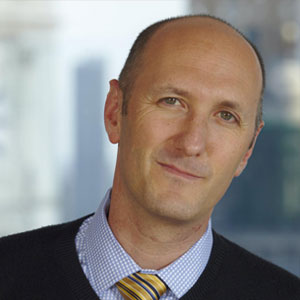 Jonathan Heit is the Co-founder and Global Chief Operating Officer at Allison+Partners. The award-winning Allison+Partners is a global marketing and communications agency operating in 50 worldwide markets. The agency specializes in corporate, consumer brands, public affairs, reputation risk, and health and technology practices.
Jonathan Heit is the Co-founder and Global Chief Operating Officer at Allison+Partners. The award-winning Allison+Partners is a global marketing and communications agency operating in 50 worldwide markets. The agency specializes in corporate, consumer brands, public affairs, reputation risk, and health and technology practices.
In the 20-plus years under Jonathan’s leadership at Allison+Partners, he’s grown the agency from two offices and a 14-person staff to a $100-million global operation. Jonathan works closely with finance and human resources to maximize the agency’s potential. His additional responsibilities include internal communications, external marketing, and the agency’s overall diversity, equity, and inclusion.
Here’s a glimpse of what you’ll learn:
- Jonathan Heit shares the Allison+Partners origin story
- The importance of future-proofing
- What were the early days like for Allison+Partners?
- Lessons learned from starting a company shortly before 9/11
- Employee engagement throughout the markets
- Dealing with inflationary pressure as an agency leader
- Jonathan explains his global experience
- What’s the best advice Jonathan has ever received?
- Jonathan shares his daily routine
In this episode…
When owning or heading a company, it’s important to design a future-proof business plan. The best way to do that is to create a business that consistently tops the market. However, an exposed corporation is vulnerable to bankruptcy. How can you future-proof your business to withstand the test of time?
Business leader Jonathan Heit has one word for you: diversify. When an agency or company has more than one location, it can survive if there is a dip in one of its other operating markets. Geographical locations that perform well aid the markets that are struggling. Intrigued? Here’s how you can learn more.
Join Chad Franzen, host of the Top Business Leaders Show, as he speaks with Jonathan Heit, Co-founder and Global Operating Officer of Allison+Partners. Jonathan explains future-proofing an organization, the Allison+Partners origin story, dealing with inflationary pressures, and more. Plus, Jonathan shares his daily routine and some of the best advice he’s received as a business leader.
Resources mentioned in this episode:
- Chad Franzen on LinkedIn
- Rise25
- Email the team at Rise25: support@rise25media.com
- Jonathan Heit on LinkedIn
- Allison+Partners
- Scott Allison on LinkedIn
- Andy Hardie-Brown on LinkedIn
- Scott Pansky on LinkedIn
Sponsor for this episode…
At Rise25, we’re committed to helping you connect with your Dream 100 referral partners, clients, and strategic partners through our done-for-you podcast solution.
We’re a professional podcast production agency that makes creating a podcast effortless. Since 2009, our proven system has helped thousands of B2B businesses build strong relationships with referral partners, clients, and audiences without doing the hard work.
What do you need to start a podcast?
When you use our proven system, all you need is an idea and a voice. We handle the strategy, production, and distribution – you just need to show up and talk.
The Rise25 podcasting solution is designed to help you build a profitable podcast. This requires a specific strategy, and we’ve got that down pat. We focus on making sure you have a direct path to ROI, which is the most important component. Plus, our podcast production company takes any heavy lifting of production and distribution off your plate.
We make distribution easy.
We’ll distribute each episode across more than 11 unique channels, including iTunes, Spotify, and Google Podcasts. We’ll also create copy for each episode and promote your show across social media.
Co-founders Dr. Jeremy Weisz and John Corcoran credit podcasting as being the best thing they have ever done for their businesses. Podcasting connected them with the founders/CEOs of P90x, Atari, Einstein Bagels, Mattel, Rx Bars, YPO, EO, Lending Tree, Freshdesk, and many more.
The relationships you form through podcasting run deep. Jeremy and John became business partners through podcasting. They have even gone on family vacations and attended weddings of guests who have been on the podcast.
Podcast production has a lot of moving parts and is a big commitment on our end; we only want to work with people who are committed to their business and to cultivating amazing relationships.
Are you considering launching a podcast to acquire partnerships, clients, and referrals? Would you like to work with a podcast agency that wants you to win?
Contact us now at support@rise25media.com or book a call at rise25.com/bookcall.
Rise25 Co-founders, Dr. Jeremy Weisz and John Corcoran, have been podcasting and advising about podcasting since 2008.
Episode Transcript
Intro 0:04
Welcome to the Top Business Leaders Show. Powered by Rise25 Media. We feature top founders, executives, and business leaders from all over the world.
Chad Franzen 0:20
Chad Franzen, here. Co-host of the Top Business Leaders Show where we feature CEOs, entrepreneurs, and top leaders in the business world. This episode is brought to you by Rise25. We help b2b businesses reach their dream relationships and connect with more clients referrals and strategic partnerships and get ROI through done for you podcasts. If you have a b2b business and want to build great relationships, there’s no better way to do it than to profile the people and companies you admire on your very own podcast. To learn more, go to Rise25.com or email us at Support@Rise.com Jonathan Heit is Co-founder and Chief Operating Officer, Global Chief Operating Officer at Allison+Partners. During the past 20 plus years, he has played a role in all of the major milestones in the agency’s growth from two offices and 14 people to a global $100 million firm operating in more than 50 markets. In his current role as Global COO, Jonathan focuses on harmonizing and rationalizing agency operations around the world, working closely with finance and HR to maximize the potential of the agency and by reducing friction, enhancing collaboration and driving towards KPIs. He is also responsible, responsible for the internal communications, external marketing and the agency’s overall approach to diversity, equity and inclusion. Hey, Jonathan, thanks so much for joining me today. How are you?
Jonathan Heit 1:39
Thank you, Chad. Doing great appreciate, appreciate your time.
Chad Franzen 1:42
Hey, so tell me about Allison+Partners and how it came about.
Jonathan Heit 1:46
Sure, Allison partners was founded really out of originally the dot com bust back way back in 1999. You know, we, we had all worked together at a previous shop that was focused exclusively on that first wave of internet technology. And for some of your listeners that are a little older, like me, remember, I remember those days when, you know, there were pink slip parties in San Francisco. And and it was, it was a lot of similarities to some of what we’re seeing today and in that technology market, sadly. But I think the fact that we are where we are today is indicative of how we have we built this thing to really be future proofed. Really, our big learning out of that was that we never wanted to really be focused on one specific category. So again, we came from an agency that really focused on technology exclusively. So that if there is a dip in that market, you know, you’re completely exposed. We also looked at our geographical footprint and recognized that if we diversify that footprint, even from day one, as small as we were, we were still two offices, right. So we always felt like if we have more than one geographical marketplace, again, if there’s a dip and you start to build out globally, that other markets can make up for that. And that really was the philosophy we saw a real hole in the market as well. When you think about in the marketing communications landscape, you had these massive behemoths. Very well known, owned by holding companies for the most part, pretty nameless, faceless types of organizations where they don’t really from our experience, and folks who’ve come from that world, to our agency, don’t put the put the focus and emphasis on employee experience across the board the way we do a lot of churn at junior staff. And then there are smaller, what you might call mom and pop shops that might be in one market, or might be and many of these are really impressive shops focused on again, one category, say entertainment, or fashion. And for us, we felt like if we could be much more of a general firm, but be a midsize firm, that there was a lot of room to grow and a lot of room to be successful. And to date. Fortunately, that’s that’s been the case for us.
Chad Franzen 4:22
Over the you mentioned the circumstances under which the firm was kind of founded over the early days. They’re like,
Jonathan Heit 4:29
Well, we started on September 1, 2001. And we thought this was as bad as it was ever going to get and it got about 20 times worse. So we always like to say you learn a lot more from your, from your challenges and your failures than you do from your successes. So those early days were quite difficult, but we were committed to maintaining the team we had, we were getting, you know, notices from clients across the board that that they weren’t going to be able to continue with us So we really launched in, in really one of the more difficult times, frankly, in, in business history, I think. But certainly in ours, I think we learned a lot in terms of who we were as people and what we were committed to. And what was important, really took a lot of, made a lot of sacrifices in the early days, particularly Scott Allison and Andy Hardie-Brown, who were to the, to my co founders and, and Scott Pansky, as well, really, in terms of some of the personal sacrifices made, to make sure that the company could continue, as well as again, really diversifying who we were and the type of work we did, I had a real background in technology, but not just the Internet technologies that were becoming popular in the day, consumer technologies like Samsung and these sorts of things that our clients to this day, other co founders had experience in, in corporate social responsibility in hospitality and travel, and consumer. And so we really said let’s, let’s, again, let’s diversify. Let’s focus, let’s get through these difficult times, and ultimately come out the other end stronger for it. I think the other side of that is lean on your people, right? We really worked with our teams to say, what do you want to work on? How what role did you want to have in the future of this organization, and people really, really stepped up, we’re able to make their own sacrifices in terms of long term opportunity. And, you know, several of those folks, amazingly, are still with us to this day.
Chad Franzen 6:36
You mentioned kind of learning from your mistakes, those can often be, you know, tough at the time, but a great way to kind of move forward. Was there kind of a big mistake. It was, you know, 20 years ago, maybe when you guys first started, but is there a big mistake that you guys learned a lot from
[continue to page 2]








